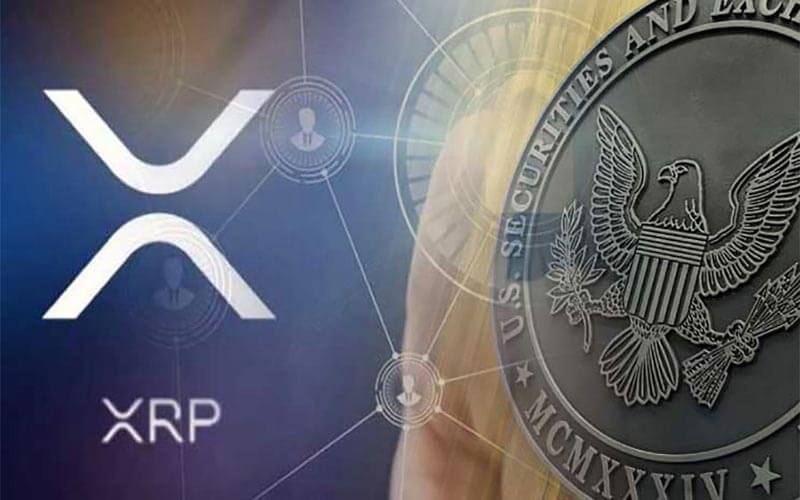XRP And The SEC: Understanding The Regulatory Uncertainty Surrounding Classification

Table of Contents
The SEC's Case Against Ripple
The Howey Test and XRP
The SEC's case hinges on the Howey Test, a framework used to determine whether an investment constitutes a security. The Howey Test has four prongs: an investment of money, in a common enterprise, with a reasonable expectation of profits, derived primarily from the efforts of others. The SEC argues that XRP satisfies all four prongs, classifying it as an unregistered security.
- SEC Arguments: The SEC contends that Ripple’s programmatic sales and distribution of XRP created an investment contract. They emphasize that investors purchased XRP expecting profits generated by Ripple's efforts in developing and promoting the XRP Ledger and its ecosystem.
- Investment Contract Definition: The SEC defines an "investment contract" broadly, arguing that the expectation of profit stemming from Ripple’s activities, rather than from the inherent utility of XRP, fulfills the Howey Test’s criteria. This interpretation has significant implications for the broader cryptocurrency landscape.
Allegations of Unregistered Securities Offerings
The SEC alleges that Ripple conducted unregistered securities offerings of XRP, violating federal securities laws. This claim is central to their case.
- Types of Unregistered Sales: The SEC points to various XRP sales, including those to institutional investors and through programmatic sales, as unregistered securities offerings. These sales, they argue, lacked the necessary registration with the SEC.
- Penalties and Ramifications: The consequences of an unregistered securities offering are severe, potentially including substantial fines, injunctions against future sales, and reputational damage for Ripple.
Ripple's Defense and Arguments
Decentralization and XRP's Functionality
Ripple argues that XRP is a decentralized digital asset, functioning as a bridge currency for facilitating cross-border payments, and therefore does not meet the definition of a security under the Howey Test.
- Decentralized Features: Ripple highlights the open-source nature of the XRP Ledger, its community development, and its utility beyond investment. They emphasize XRP's use in facilitating rapid and efficient transactions across various financial institutions.
- Community Development: Ripple points to the community's involvement in the XRP Ledger’s development and maintenance as evidence of decentralization, countering the SEC's claim of centralized control.
Challenging the Howey Test Application
Ripple challenges the SEC's application of the Howey Test, arguing that XRP doesn't meet the criteria of an investment contract.
- Lack of Investment Contract Elements: Ripple contends that there is no common enterprise solely reliant on Ripple’s efforts, and profit expectations are not primarily derived from Ripple's activities. Instead, XRP’s value is driven by market forces and its utility within the broader cryptocurrency ecosystem.
- Decentralized Distribution: Ripple emphasizes the decentralized nature of XRP’s distribution, arguing that it wasn't solely distributed through Ripple’s efforts, thereby weakening the SEC’s argument regarding a common enterprise.
Implications and Future Outlook for XRP and the Crypto Market
Impact on Investors and Exchanges
The ongoing uncertainty surrounding XRP's SEC classification creates significant challenges for investors and cryptocurrency exchanges.
- Investor Challenges: Investors face uncertainty regarding the future value of their XRP holdings and the potential for delisting from exchanges. This uncertainty impacts investment decisions and market confidence.
- Exchange Challenges: Exchanges face potential regulatory risks and operational complexities in dealing with XRP, including the possibility of delisting, which could impact trading volume and liquidity.
Broader Regulatory Implications for Cryptocurrencies
The Ripple case has significant implications for the broader regulatory landscape of cryptocurrencies.
- Future Regulations: The outcome of this case could influence future regulations for digital assets, potentially setting a precedent for how other cryptocurrencies are classified and regulated.
- Impact on Other Crypto Projects: The SEC's arguments and Ripple's defense will likely influence how other crypto projects navigate regulatory hurdles and may impact the development of new digital assets.
Potential Outcomes of the Case and Their Significance
Several potential outcomes exist, each with significant consequences.
- Settlement: A settlement could provide clarity but might not establish a clear legal precedent.
- Ruling in Favor of Ripple: This would likely bolster the argument that many cryptocurrencies are not securities, leading to potentially less stringent regulations for the crypto market.
- Ruling in Favor of the SEC: This would likely result in increased regulatory scrutiny of cryptocurrencies, potentially leading to stricter regulations and increased compliance burdens for the industry. This could also impact similar altcoins.
Conclusion
The SEC's case against Ripple regarding XRP's classification has created significant uncertainty in the cryptocurrency market. The arguments presented by both sides highlight the complexities of applying traditional securities laws to novel technologies like cryptocurrencies. The outcome will have profound implications for investors, exchanges, and the future regulatory landscape of digital assets. Stay informed about the ongoing developments in the XRP SEC classification case. Understanding the implications of this legal battle is crucial for anyone involved in or interested in the cryptocurrency market. Keep researching and learning about XRP SEC Classification to navigate the evolving regulatory environment effectively.

Featured Posts
-
 Giai Bong Da Thanh Nien Thanh Pho Hue Lan Thu Vii Thong Tin Ve Doi Vo Dich
May 01, 2025
Giai Bong Da Thanh Nien Thanh Pho Hue Lan Thu Vii Thong Tin Ve Doi Vo Dich
May 01, 2025 -
 Processo 8xmille Rinvio Per Il Fratello Di Becciu Aggiornamenti Vaticano
May 01, 2025
Processo 8xmille Rinvio Per Il Fratello Di Becciu Aggiornamenti Vaticano
May 01, 2025 -
 Analysis Broadcoms Extreme Price Hike On V Mware
May 01, 2025
Analysis Broadcoms Extreme Price Hike On V Mware
May 01, 2025 -
 Lich Thi Dau And Thong Tin Giai Bong Da Thanh Nien Sinh Vien Quoc Te 2025
May 01, 2025
Lich Thi Dau And Thong Tin Giai Bong Da Thanh Nien Sinh Vien Quoc Te 2025
May 01, 2025 -
 Tbs Patienten En Lange Wachttijden Risicos Voor De Maatschappij
May 01, 2025
Tbs Patienten En Lange Wachttijden Risicos Voor De Maatschappij
May 01, 2025
